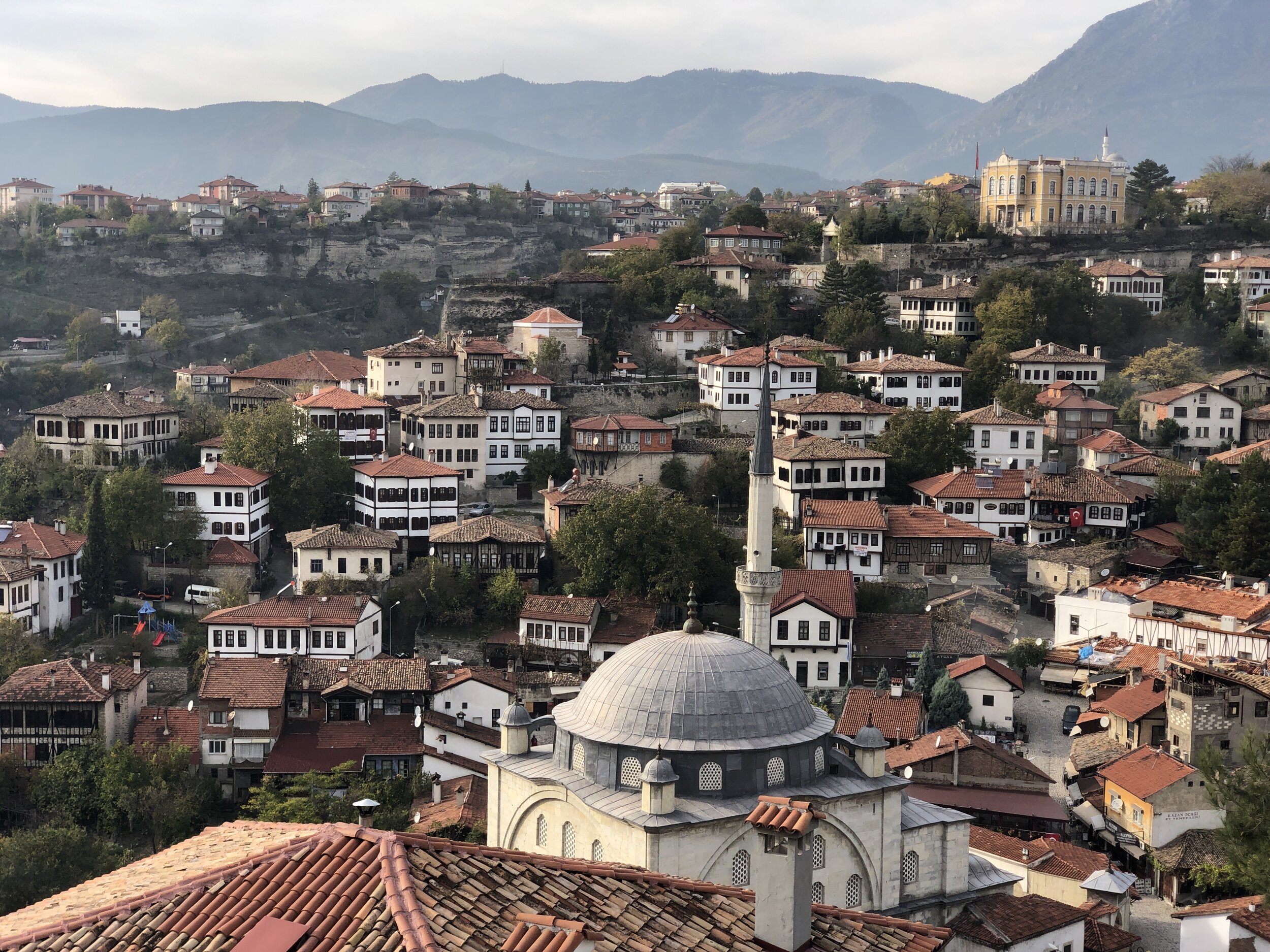
Publications & Recent Works
Upcoming
Book Chapter | Story-telling Through a Biocultural Collection: Tea at the Royal Botanic Gardens, Kew in ‘The Stories We Tell: Myths, Legends, and Anecdotes about Tea’, UC Davis - Global Tea Institute (Est. 2026 Publication)
Book Chapter | Reading the Tea Leaves: Tea in the Economic Botany Collection, Kew in ‘Tea: Nature, Culture & Society 1650-1850’, with The Linnean Society London. (Est. 2025 Publication)
Completed
Interview, Foodie Pharmacology with Dr. Cassandra Quave, Teatime with biocultural collections expert Aurora Prehn, 6 June 2023
Presentation | Society for Ethnobotany Annual Conference, Restoring access to our Biocultural Collection to support resilient plant-people relationships and ethnobotany at the Missouri Botanical Garden, 6th June 2023
Presentation | Society for the Preservation of Natural History Collections Annual Conference, Restoring access to our Biocultural Collection to support a future for ethnobotany at the Missouri Botanical Garden, 31st May 2023
Interview & Kew Gardens EBC Tea Collection Tour, YouTube, filmed, and edited independently by Mei Leaf tea London, September 2022
Reading the Tea Leaves: Tea in the Economic Botany Collection, Kew, Presentation: by Prehn, A & Nesbitt, M. In Tea: Nature, Culture & Society 1650-1850. The Linnean Society London, June 2022
Missouri Botanical Garden’s Blog Discover and Share, Post/Article: Grafting the Grape: The Rich History of Georgian Winemaking, November 11th, 2021
Society of Economic Botany - Summer 2021 Virtual Symposium, Presentation: “The Dynamics of Biocultural Diversity: Lessons from a Changing Georgian Viticulture Landscape” , August 6th - 7th, 2021
Missouri Botanical Garden | Stephen and Peter Sachs Museum, Grafting the Grape: American Grapevine Rootstock in Missouri and the World, exhibition researcher, July 2020 to June 2021 (Open May 2021 to March 2022).
UC Davis, Global Tea Initiative: for the Study of Tea Culture and Science | Talking About Tea: A Networking and Conversation Virtual Event, Panelist, April 23rd, 2021
Tea News and Tea Biz Insight | Tea Biz Podcast, interview, tea research highlight, April 23rd, 2021
Rediscovering 174 Years of Tea, Chai, and 茶 at the Royal Botanic Gardens, Kew | Tea Journey Magazine, April 9th 2021
Book Review: The Wardian Case. How a Simple Box Moved Plants and Changed the World. Keogh, Luke. 2020. University of Chicago Press, Chicago, Illinois. 288 pp. | Journal of Economic Botany 75, 94–95 (March 2021) https://doi.org/10.1007/s12231-021-09518-3
UC Davis, Global Tea Initiative: for the Study of Tea Culture and Science | 6th Annual Colloquium The Stories We Tell: Myths, Legends, and Anecdotes about Tea. “Story-telling Through a Biocultural Collection: Tea at the Royal Botanic Gardens, Kew” , 21 January 2021
Tea - Seeds of Change | Wild Alchemy Journal - Earth Edition, Inaugural Issue, 72 pages, December 2020
Talking Cranberries with Aurora Prehn | Around The Farm Table, podcast interview, November 2020
Society of Economic Botany — Fall 2020 Plants & People Newsletter, member highlight on page 3, November 2020
Society of Economic Botany — 1st Annual Fall Online Symposium, “Story-telling through a biocultural collection: tea at the Royal Botanic Gardens, Kew” @1 hour 27 minutes | The list of presenters can be found here, October 2020
Episode #24: Tea and Coffee: Conscious Uncoupling w/ Aurora Prehn, part two in a tea podcast series in collaboration with Lucia Solis, August 2020
Episode #19: Botanical Awareness, Tea Fermentation and Processing, part one in a tea podcast series in collaboration with Lucia Solis. | Love Coffee & Tea? Support her (us!) by joining Patreon and following her podcast Making Coffee to grow your knowledge and learn a refreshing take on two well known plants.
Tea Tasting Guide I wrote in partnership with my colleague Lucia Solis for Episode #19 on her podcast Making Coffee to better immerse yourself in the diversity that tea has to offer, June 2020
Copyediting & select photography used across The Ethnobotanical Assembly’s website and social platforms, ongoing
MSc Ethnobotany | Dissertation Abstract Fall 2019: The Dynamics of Biocultural Diversity: Lessons from a Changing Georgian Viticulture Landscape
This study explores the ancient biocultural relationship between grapes and winemaking in the country of Georgia, and its contemporary dynamics in the face of dramatic political and economic change since the collapse of the United Socialist Soviet Republic. Located in the south-eastern corner of Europe, Georgia is located on an isthmus between the Black and Caspian Seas at an intersection of diverse regional ecosystems, cultures, and languages lending to its dense biocultural diversity. In particular, this study worked at the level of landraces examining diversity over time within a single species through local knowledge. Major themes such as interdependency within multi-species relationships, taste, culture, and the dynamics of change are discussed in terms of biocultural diversity and its conservation. Research was conducted over nine weeks in Tbilisi and the city of Telavi in the ancient viticulture region of Kakheti. Ethnographic methods used were participant observation, semi-structured interviews, and questionnaires. 59 participants were included with 59 varieties engaged with over time, and 54 being grown during data collection. Attempts to revive, maintain, and conserve biocultural diversity were encountered, such as the practice of creating and utilizing living collections among participants and supporting research institutions demonstrating the necessity of human involvement in the conservation of this cultivated crop.
Prehn, A. (2014, Fall). Rice on the Roof: Marquette Scientist’s Research goes Global to Restore Local Connections. Edible Milwaukee, (6), 8-11
Prehn, A. (2014, Summer). The Bees’ Knees, Needs and More: Local Keepers Reveal Complex Pictures of Hives, Honey. Edible Milwaukee, (5), 18-22